William lycan philosophy of language pdf
In ”Explanation and Epistemology,” William Lycan proposes that explanation and epistemology are related in at least three ways. First, “to explain something is an epistemic act, and to have something explained to you is to learn.” The second way in which explanation is related to epistemology is by the idea of explanatory inference (the
Eliot Michaelson Spring 2015 Philosophy of Logic and Language (5AANB011) 1. Module Description This course will introduce students to the central topics in the Philosophy of Logic and Language.
The goal of this course is to provide an introduction to central themes in contemporary philosophy of language, with an emphasis on topics that allow us to explore the relationship of language to mind, experience, and reality. In particular, we shall
He has published some 40 articles on various topics in linguistics and philosophy, and has authored or edited eight previous books, including Philosophical Perspectives on Language (1996), Knowledge and Mind (2000) and is co-editor of Philosophy and Linguistics (1999).
William Lycan, Philosophy of Language, chapter 1 Stanley, J. ‘Philosophy of Language in the Twentieth entury’. Available online. Introduction, and sections 1 and 2. Frege, G. On sense and reference In lack and Geach (eds.) Translations from the Philosophical Writings of Gottlob Frege. Stanford Encylopedia of Philosophy (online) entry on Names. Frege, G. 1956 The Thought [Mind. …
David Braddon-Mitchell & Frank Jackson, Philosophy of Mind and Cognition. Basil Blackwell 1996. Samuel Guttenplan, A Companion to the Philosophy of Mind. Blackwell 1994. William Lycan (ed.), Mind and Cognition, 2nd ed. Blackwell 1999. David Rosenthal (ed.), The Nature of Mind. Oxford University Press 1991. Tentative R EADING S CHEDULE: (readings in Chalmers are listed as [C#], …
Download PDF by William Lycan: Philosophy of Language (Routledge Contemporary Introductions. Philosophy of Language: a modern advent introduces the coed to the most matters and theories in twentieth-century philosophy of language, focusing in particular on linguistic phenomena. issues are dependent in 3 components within the publication. half I
Philosophy and the Mirror of Nature is a critique of representationalist epistemology framed within the context of a historical reconstruction that portrays philosophy itself as originating in the project of representationalist epistemology.
Direct criticisms appear in William Lycan’s “A New Lilliputian Argument against Machine Functionalism,” Philosophical Studies, 35 (1979) and in Lycan’s “Form, Function, and Feel,” forthcoming in the Journal of Philosophy.
lycan william g. philosophy of language a contemporary introduction pdf Lycan, W, Philosophy of Language: A Contemporary Introduction, London.Although philosophical considerations about language have occurred throughout the history of. 2 Descartes: The beginnings of modern philosophy of mind. 4 Computers as models
Here it will be obvious to some that I am imitating the opening of William Lycan’s superb Philosophy of Language: A Contemporary Introduction. The first many parts of this course will be following Lycan…
Philosophy of Langauge Reading list.

Philosophy of Language Version 1 (Syllabus) Georg
William G. Lycan has expertise in Physics and Space Science. philosophy of mind, philosophy of language, action theory, ethics, metaphilosophy,…, Hector CastaŇeda has found time over the
1/11/2008 · William G. Lycan is William Rand Kenan Professor of Philosophy at the University of North Carolina. He is the author of over 150 articles as well as seven books. He is the author of over 150 articles as well as seven books.
William G.Lycan is a leading philosopher of language and mind. He is William Rand Kenan, Jr. Professor at the University of North Carolina. His published works include over 100 articles as well as six books, among them Logical Form in Natural Language (1984), Consciousness (1987), Judgement and Justification (1988), Modality and Meaning (1994), and Consciousness and Experience (1998).
First-Year Seminar Ethics and Speech Fall 2017 Description This course is an introduction to moral and political philosophy with special focus on speech.

William Lycan’s Real Conditionals (Oxford University Press 2001; isbn 0-19-924207-0; 223 pp.) Real Conditionals is the result of a couple of decades of William Lycan’s thinking about conditionals. It is a good example of what might be called “systematic ordinary language philosophy,” combining an accommodation of what we would say with the equipment of formal semantics and linguistics
I must admit that my relationship to philosophy of language is a bit like my relationship to classic literature: I tend to admire it from afar, and rely on the opinions of people who have read it.
Reading 26: William Lycan, Philosophy of Language: A Contemporary Introduction, (New York , Routledge, 2000) selections from Part II: “Theories of Meaning”, pp. 90-97, 102-7, 116-25 Reading 27: Alexander Miller, “Introduction [to Saul Kripke’s Wittgenstein on Rules and Private Language]”, from Rule-Following and Meaning, edited by Alexander Miller and Crispin Wright, (McGill -Queen
His principal interests include philosophy of mind, philosophy of language, philosophy of linguistics, epistemology, and metaphysics. The author of eight books and over 150 articles (and over 20 reviews) Lycan is an advocate of the version of functionalism , known as homuncular functionalism .
the philosophy of language and logic,but answering it also requires discussion of issues in metaphysics, philosophy of mind,epistemology,and probability theory. Because conditionals are everywhere,they are intrinsically interesting.Their ubiquity in everyday life
11 William Lycan identifies three problems: the problem of empty names for Saul Kripke’s causal- historical view of reference fixing (William Lycan, Philosophy of Language: a Contemporary Introduction Second Edition , (New York: Routledge, 2008), pg 56), the “Problem of Apparent
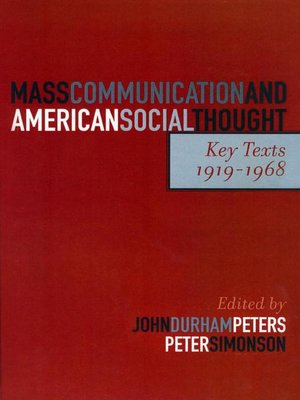
William Lycan, Philosophy of Language: a contemporary introduction, 2nd edition, Routledge 2008 (Lycan) 2. A. P. Martinich (ed.), The Philosophy of Language, 5th edition, Oxford University Press 2008 (Martinich) [note: the 4th edition is fine] 3. Readings on P drive from the following books (please compile all the readings in a reading folder. Readings will be deleted from P drive in two weeks
An optional book is William Lycan’s Philosophy of Language. While I won’t be assigning reading from this book aside from the first chapter, it is a very clear introduction to this difficult subject and you might find it useful if you are struggling with some
® Lycan, William G. 1996. Bealer on the Possibility of Philosophical Knowledge. Bealer on the Possibility of Philosophical Knowledge. Philosophical Studies , 81: 143-150.
Before we begin to expound Frege’s views on sense and reference, a few words about the general aims of the philosophy of language might be useful. The most general thing we can say is that philosophy of language is concerned with the general nature of meaning. But this is not very helpful to the
Philosophy of Language William G. Lycan 9780415957526
Philosophy of Language is an excellent introductory book on semantics and linguistics. The book is filled with funny examples and notes from the author, which make …
Mind and Cognition: An Anthology, 2nd Edition. William G. Lycan (ed.) Blackwell (2002) Authors William G. Lycan University of North Carolina, Chapel Hill Abstract This article has no associated abstract. fix it) Keywords Artificial Intelligence Behaviorism Biology Brain Causation Cognition Folk Functionalism Language Metaphysics Mind Science: Categories Philosophy of Mind, General …
William G. Lycan – 2013 – Southern Journal of Philosophy 51 (1):112-120. This paper addresses each of two of Gutting’s three main contentions: that like anyone else, philosophers are entitled to begin with what they find obvious and that philosophy has produced a distinctive body of knowledge.
Philosophy of Language (7AAN2059) 1. Module Description In the wake of the logical revolution at the end of the 19th century, many philosophers well- versed in formal logic turned their attention to the project of understanding natural language. This course will examine how these philosophers attempted to make sense of natural language using the tools of modern logic, and how this project of
may find this course easier if you have taken Philosophy 315 (Symbolic Logic). Texts and Supplies William Lycan, Philosophy of Language: A Contemporary Introduction. 3. Readings on UBLearns 4. Four bluebooks, small size 4. Recommended: Saul Kripke, Naming and Necessity. Martinich, Lycan, and bluebooks can be purchased at the campus bookstore. Required Work 1. Regular attendance and
Philosophy of Language Philosophy of Language: a Contemporary Introduction introduces the student to the main issues and theories in twentieth and twenty-first-century philosophy of language, focusing specifically on linguistic phenomena.
4/11/2008 · Philosophy of Language: A Contemporary Introduction introduces the student to the main issues and theories in twentieth century philosophy of language, focusing specifically on …
16/01/2015 · An introduction to philosophy of language through systematic and accessible explanations of ten classic texts by such thinkers as Frege, Kripke, Russell, and Putnam. – james cook university application form for international students Course Description: This is an advanced undergraduate survey of the major problem areas in the philosophy of science. Topics vary somewhat, but generally include many of the following: the nature of explanation, the problem of induction and confirmation, concept formation, scientific methodology, verifiability and falsifiability, the
the philosophy of language martinich and theories in twentieth and twenty-first-century phi- losophy of language, focusing specifically on linguistic phenomena.
G ENERAL R EADING Monographs Michael Devitt – Realism and Truth Susan Haack – Philosophy of Logics William Lycan – Philosophy of Language G. McCulloch – The Game of the Name
The course is partly based on William Lycan’s excellent introduction to the philosophy of language, Philosophy of language: a contemporary introduction (Routledge, 2000). You should buy
Download e-book for iPad: Philosophy of Language (Routledge Contemporary Introductions by William Lycan. Philosophy of Language: a modern advent introduces the scholar to the most matters and theories in twentieth-century philosophy of language, focusing in particular on linguistic phenomena. themes are based in 3 elements within the e-book. half I, Reference and Referring Expressions
The only prerequisite is one prior philosophy course. I will use some symbolic logic, which I I will use some symbolic logic, which I will explain as fully as possible in the time we have, but you may find this course easier if you
the structure of William Lycan’s Philosophy of Language: A Contemporary Introduction, which provides a more detailed treatment of the following, and other, theories of meaning.
Intro to Language The Referential Theory of Meaning
Philosophy of language explores some of the fundamental yet most technical problems in philosophy, such as meaning and reference, semantics, and propositional attitudes. Some of its greatest exponents, including Gottlob Frege, Ludwig Wittgenstein and
The authors apply their analysis to each of several important issues in philosophy of language, philosophy of mind, and ethical theory in which the previously unexamined notion of “knowing who” has loomed large-the mechanics of linguistic referring, the foundations of epistemic logic, problems of self-knowledge and self-regarding belief, universalizability and “Golden Rule” arguments in ethics
Philosophy of mind is concerned with fundamental issues about the relation between mind and body and mind and world, and with the nature of the diverse variety of mental phenomena, such as thought, self-knowledge, consciousness, perception,
REPLY TO WILLIAM LYCAN Professor Lycan believes that intuition is extremely unreliable and that intuition-based philosophy differs from science and common sense in that the latter lead to consensus whereas philosophy does not. I completely disagree. The on-balance reliability of our elementary concrete-case intuitions is without question one of the most impres- sive facts about human cognition
underlying issues in philosophy of language such as the putative rigidity of phenomenal terms as well as the distinctive way in which such terms have their reference fixed. Required Readings
consciousness Download consciousness or read online here in PDF or EPUB. Please click button to get consciousness book now. All books are in clear copy …
Philosophy of Language Second Edition William G. Lycan Philosophy of Mathematics Second Edition James R. Brown Philosophy of Mind Second Edition John Heil Philosophy of Religion Keith E. Yandell Philosophy of Science Alex Rosenberg Social and Political Philosophy John Christman Philosophy of Psychology José Bermudez Classical Modern Philosophy Jeffrey Tlumak Philosophy …
Lycan’s introduction to the philosophy of language is fairly easy to read, but it is also not the most exciting book to pick up. The first third I found to be interesting, but as the book went on I found my attention drifting further and further away.
Philosophy of Language The Classics Explained on JSTOR
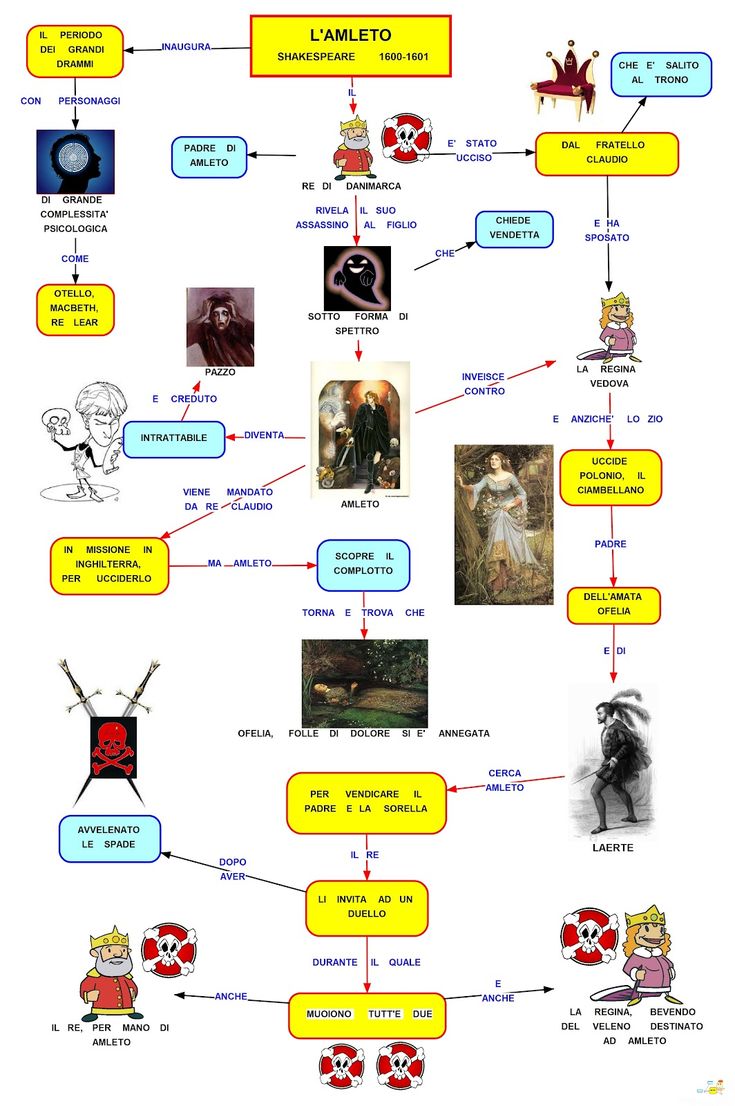
PhilosophyofLogicandLanguage STEPHEN WRIGHT
‘The Blackwell Guide to the Philosophy of Language’ by Michael Devitt & Richard Hanley is a digital PDF ebook for direct download to PC, Mac, Notebook, Tablet, iPad, iPhone, Smartphone, eReader – …
Accept. This website uses cookies to ensure you get the best experience on our website
Editor William G. Lycan (born 1945) is an American philosopher teaching at the University of North Carolina and the University of Connecticut; he has written other books such as Philosophy of Language: A Contemporary Introduction,Consciousness and Experience,Consciousness, etc. He wrote in the Preface to this 1990 book, “In the past thirty years, the philosophy …
Philosophy [PDF] [EPUB] Modality And Meaning Studies In Linguistics And Philosophy Books Modality And Meaning Studies In Linguistics And Philosophy November 14th, 2018 – Modality and Language MIT Massachusetts Institute of November 8th 2018 Modality is a category of linguistic meaning having to do with the expression of â Modality and Meaning Studies in Linguistics and …
Philosophy of Language acsu.buffalo.edu
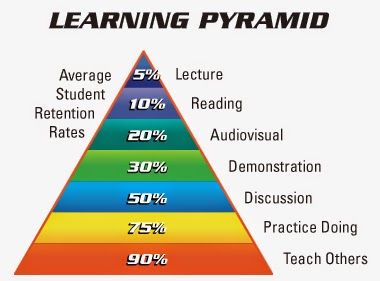
Durham E-Theses COnnecting REpositories
In philosophy too, Chomsky led the attack against Quine’s behaviorism regarding language and language learning.3 Moreover, Chomsky’s (1957, 1965) expressly computational view of language processing was a major inspiration for Functionalism in the philosophy of mind, as founded by Hilary Putnam and Jerry Fodor.4 Thus, when Chomsky turned his attention specifically and explicitly to the
3 Βασική Βιβλιογραφία Εγχειρίδια William Lycan: Philosophy of Language: A Contemporary Introduction, Routledge, 1999.
Information Retrieval and the Philosophy of Language 5 When we look at just the reasonably correct or useful descriptions that can represent an item of information, this set of reasonable descriptions
It’s very easy to waste a lot of time and energy in philosophy reading stuff that just isn’t helpful. If you read stuff from poor sources, you’re liable to wind up
William G. Lycan (born on 26 September 1945) is an American philosopher who has made relevant contributions to a range of philosophical fields, including philosophy of mind, philosophy of language, epistemology, and metaphysics.
William G. Lycan, author of Philosophy of Language: A Contemporary Introduction, on LibraryThing LibraryThing is a cataloging and social networking site for booklovers Home Groups Talk Zeitgeist
Mind and cognition: an anthology by Lycan, William G This volume represents a vital resource – a new edition of the highly successful collection of classic and contemporary articles in philosophy …
Alex Byrne, “Intentionalism Defended” [PDF] The Philosophical Review William Lycan, “The David Chalmers (philosophy of mind and language, cognitive science, metaphysics) Austen Clark (color, consciousness, vision) David Cole (consciousness, language)
Fiction and Language Birkbeck University of London
Philosophy of Language Christopher Newport University, Spring 2019 Dr. Chris Tweedt Philosophy 379 202 McMurran Hall TR 6{7:30 pm chris.tweedt@cnu.edu 200D McMurran Hall
William Lycan, Philosophy of Language: A Contemporary Introduction, Second Edition (Abingdon: Routledge 2008) – eBook A classic text in philosophy of language and metaphysics that will come up several times is this:
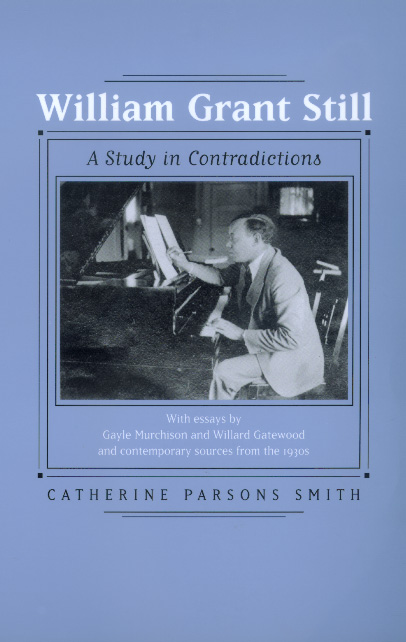

The Philosophy Of Language Martinich
Language and Representation Precipitate Flux
– Mind and Cognition An Anthology William G. Lycan Jesse
Philosophy of Language The Classics Explained Goodreads

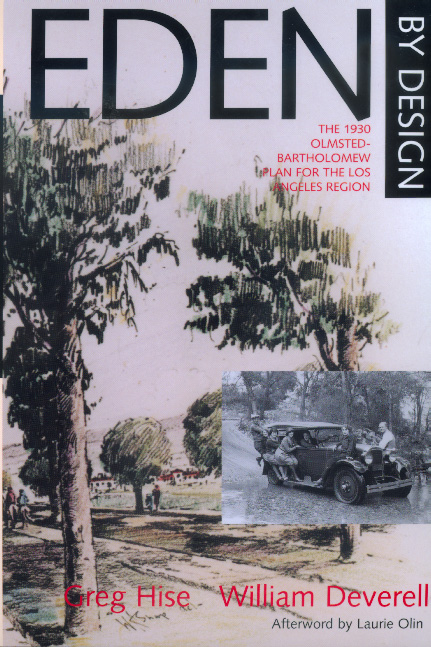
Download e-book for iPad A Course in Model Theory An
William G. Lycan LibraryThing
A Priori knowledge
Phi losophy of Language University at Buffalo
William G. Lycan has expertise in Physics and Space Science. philosophy of mind, philosophy of language, action theory, ethics, metaphilosophy,…, Hector CastaŇeda has found time over the
REPLY TO WILLIAM LYCAN Professor Lycan believes that intuition is extremely unreliable and that intuition-based philosophy differs from science and common sense in that the latter lead to consensus whereas philosophy does not. I completely disagree. The on-balance reliability of our elementary concrete-case intuitions is without question one of the most impres- sive facts about human cognition
Reading 26: William Lycan, Philosophy of Language: A Contemporary Introduction, (New York , Routledge, 2000) selections from Part II: “Theories of Meaning”, pp. 90-97, 102-7, 116-25 Reading 27: Alexander Miller, “Introduction [to Saul Kripke’s Wittgenstein on Rules and Private Language]”, from Rule-Following and Meaning, edited by Alexander Miller and Crispin Wright, (McGill -Queen
Alex Byrne, “Intentionalism Defended” [PDF] The Philosophical Review William Lycan, “The David Chalmers (philosophy of mind and language, cognitive science, metaphysics) Austen Clark (color, consciousness, vision) David Cole (consciousness, language)
‘The Blackwell Guide to the Philosophy of Language’ by Michael Devitt & Richard Hanley is a digital PDF ebook for direct download to PC, Mac, Notebook, Tablet, iPad, iPhone, Smartphone, eReader – …
lycan william g. philosophy of language a contemporary introduction pdf Lycan, W, Philosophy of Language: A Contemporary Introduction, London.Although philosophical considerations about language have occurred throughout the history of. 2 Descartes: The beginnings of modern philosophy of mind. 4 Computers as models
William Lycan, Philosophy of Language: a contemporary introduction, 2nd edition, Routledge 2008 (Lycan) 2. A. P. Martinich (ed.), The Philosophy of Language, 5th edition, Oxford University Press 2008 (Martinich) [note: the 4th edition is fine] 3. Readings on P drive from the following books (please compile all the readings in a reading folder. Readings will be deleted from P drive in two weeks
Philosophy of Language Christopher Newport University, Spring 2019 Dr. Chris Tweedt Philosophy 379 202 McMurran Hall TR 6{7:30 pm chris.tweedt@cnu.edu 200D McMurran Hall
In philosophy too, Chomsky led the attack against Quine’s behaviorism regarding language and language learning.3 Moreover, Chomsky’s (1957, 1965) expressly computational view of language processing was a major inspiration for Functionalism in the philosophy of mind, as founded by Hilary Putnam and Jerry Fodor.4 Thus, when Chomsky turned his attention specifically and explicitly to the
William Lycan, Philosophy of Language: A Contemporary Introduction, Second Edition (Abingdon: Routledge 2008) – eBook A classic text in philosophy of language and metaphysics that will come up several times is this:
An optional book is William Lycan’s Philosophy of Language. While I won’t be assigning reading from this book aside from the first chapter, it is a very clear introduction to this difficult subject and you might find it useful if you are struggling with some
Philosophy of Language Philosophy of Language: a Contemporary Introduction introduces the student to the main issues and theories in twentieth and twenty-first-century philosophy of language, focusing specifically on linguistic phenomena.
‘The Blackwell Guide to the Philosophy of Language’ by Michael Devitt & Richard Hanley is a digital PDF ebook for direct download to PC, Mac, Notebook, Tablet, iPad, iPhone, Smartphone, eReader – …
1 Chomsky on the Mind–Body Problem
Editor William G. Lycan (born 1945) is an American philosopher teaching at the University of North Carolina and the University of Connecticut; he has written other books such as Philosophy of Language: A Contemporary Introduction,Consciousness and Experience,Consciousness, etc. He wrote in the Preface to this 1990 book, “In the past thirty years, the philosophy …
First-Year Seminar Ethics and Speech WordPress.com
Philosophy of Language Juniata College
William G. Lycan (born on 26 September 1945) is an American philosopher who has made relevant contributions to a range of philosophical fields, including philosophy of mind, philosophy of language, epistemology, and metaphysics.
PHIL10131 Metaphysics of Mind The University of Edinburgh
Philosophy of language a contemporary introduction pdf
Download e-book for iPad A Course in Model Theory An
lycan william g. philosophy of language a contemporary introduction pdf Lycan, W, Philosophy of Language: A Contemporary Introduction, London.Although philosophical considerations about language have occurred throughout the history of. 2 Descartes: The beginnings of modern philosophy of mind. 4 Computers as models
Introduction to philosophy of language Robin McKenna
William G. Lycan (born on 26 September 1945) is an American philosopher who has made relevant contributions to a range of philosophical fields, including philosophy of mind, philosophy of language, epistemology, and metaphysics.
Philosophy of Language The Classics Explained Goodreads
Philosophy of Language William G. Lycan 9780415957526
William G.Lycan is a leading philosopher of language and mind. He is William Rand Kenan, Jr. Professor at the University of North Carolina. His published works include over 100 articles as well as six books, among them Logical Form in Natural Language (1984), Consciousness (1987), Judgement and Justification (1988), Modality and Meaning (1994), and Consciousness and Experience (1998).
Philosophy 691 Conditionals geoffpynn.weebly.com
Get Lsi/Vlsi Testability Design PDF Dr Glyn Towlerton Books
the philosophy of language and logic,but answering it also requires discussion of issues in metaphysics, philosophy of mind,epistemology,and probability theory. Because conditionals are everywhere,they are intrinsically interesting.Their ubiquity in everyday life
What is eliminative materialism? Australasian Journal of
The course is partly based on William Lycan’s excellent introduction to the philosophy of language, Philosophy of language: a contemporary introduction (Routledge, 2000). You should buy
Philosophy of Language A Contemporary Introduction – PDF
Philosophy of Language A Contemporary Introduction by
William Lycan, Philosophy of Language: a contemporary introduction, 2nd edition, Routledge 2008 (Lycan) 2. A. P. Martinich (ed.), The Philosophy of Language, 5th edition, Oxford University Press 2008 (Martinich) [note: the 4th edition is fine] 3. Readings on P drive from the following books (please compile all the readings in a reading folder. Readings will be deleted from P drive in two weeks
Get Lsi/Vlsi Testability Design PDF Dr Glyn Towlerton Books
Philosophy of Mind Amazon Web Services
® Lycan, William G. 1996. Bealer on the Possibility of Philosophical Knowledge. Bealer on the Possibility of Philosophical Knowledge. Philosophical Studies , 81: 143-150.
Colin McGinn “Philosophy of Language the Classics
Philosophy of language explores some of the fundamental yet most technical problems in philosophy, such as meaning and reference, semantics, and propositional attitudes. Some of its greatest exponents, including Gottlob Frege, Ludwig Wittgenstein and
TOPICS IN PHILOSOPHICAL METHODOLOGY PHILOSOPHY 7070
Wiley Contemporary Debates in Cognitive Science Robert
consciousness Download consciousness or read online here in PDF or EPUB. Please click button to get consciousness book now. All books are in clear copy …
Philosophy of language a contemporary introduction pdf
Mind And Cognition An Anthology weareausa.org
Michael Devitt & Richard Hanley The Blackwell Guide to
William Lycan, Philosophy of Language, chapter 1 Stanley, J. ‘Philosophy of Language in the Twentieth entury’. Available online. Introduction, and sections 1 and 2. Frege, G. On sense and reference In lack and Geach (eds.) Translations from the Philosophical Writings of Gottlob Frege. Stanford Encylopedia of Philosophy (online) entry on Names. Frege, G. 1956 The Thought [Mind. …
A Priori knowledge
Eliot Michaelson Spring 2015 Philosophy of Logic and Language (5AANB011) 1. Module Description This course will introduce students to the central topics in the Philosophy of Logic and Language.
Psychologism and Behaviorism nyu.edu
Philosophy of language a contemporary introduction pdf
Alex Byrne, “Intentionalism Defended” [PDF] The Philosophical Review William Lycan, “The David Chalmers (philosophy of mind and language, cognitive science, metaphysics) Austen Clark (color, consciousness, vision) David Cole (consciousness, language)
Explanation and Epistemology Oxford Scholarship
Philosophy of Langauge Reading list.
Philosophy of Logic and Language (5AANB011)
Philosophy of Language (7AAN2059) 1. Module Description In the wake of the logical revolution at the end of the 19th century, many philosophers well- versed in formal logic turned their attention to the project of understanding natural language. This course will examine how these philosophers attempted to make sense of natural language using the tools of modern logic, and how this project of
William G. Lycan (ed.) Mind and Cognition An Anthology
Editor William G. Lycan (born 1945) is an American philosopher teaching at the University of North Carolina and the University of Connecticut; he has written other books such as Philosophy of Language: A Contemporary Introduction,Consciousness and Experience,Consciousness, etc. He wrote in the Preface to this 1990 book, “In the past thirty years, the philosophy …
Philosophy of Language A Contemporary Introduction
Philosophy of Language A Contemporary Introduction by
PHIL10131 Metaphysics of Mind The University of Edinburgh
may find this course easier if you have taken Philosophy 315 (Symbolic Logic). Texts and Supplies William Lycan, Philosophy of Language: A Contemporary Introduction. 3. Readings on UBLearns 4. Four bluebooks, small size 4. Recommended: Saul Kripke, Naming and Necessity. Martinich, Lycan, and bluebooks can be purchased at the campus bookstore. Required Work 1. Regular attendance and
Philosophy of Language (7AAN2059)
1 Chomsky on the Mind–Body Problem
Atheism and Analogy Aquinas Against the Atheists Dan Linford
4/11/2008 · Philosophy of Language: A Contemporary Introduction introduces the student to the main issues and theories in twentieth century philosophy of language, focusing specifically on …
Mind And Cognition An Anthology weareausa.org
Direct criticisms appear in William Lycan’s “A New Lilliputian Argument against Machine Functionalism,” Philosophical Studies, 35 (1979) and in Lycan’s “Form, Function, and Feel,” forthcoming in the Journal of Philosophy.
Philosophy of Language A Contemporary Introduction by
Philosophy of Language A Contemporary Introduction PDF
In philosophy too, Chomsky led the attack against Quine’s behaviorism regarding language and language learning.3 Moreover, Chomsky’s (1957, 1965) expressly computational view of language processing was a major inspiration for Functionalism in the philosophy of mind, as founded by Hilary Putnam and Jerry Fodor.4 Thus, when Chomsky turned his attention specifically and explicitly to the
ΦΙΛΟΣΟΦΙΑ ΤΗΣ ΓΛΩΣΣΑΣ ΣΗΜΕΙΩΣΕΙΣ ΣΤΑΘΗΣ ΨΥΛΛΟΣ ΑΘΗΝΑ
TERM TIME LOCATION Tory Building Lecture Hall 360
Philosophy 691 Conditionals geoffpynn.weebly.com